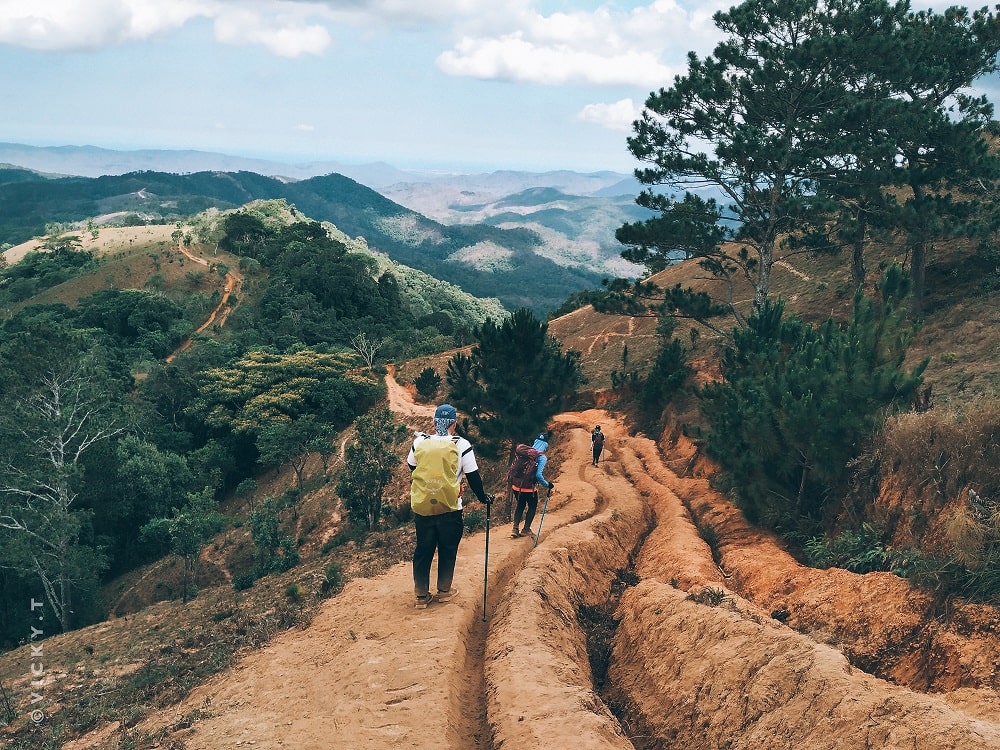Trekking is an exhilarating and rewarding way to explore the great outdoors. Whether you’re looking for a challenge, to escape the hustle and bustle of the city, or to connect with nature, trekking is an excellent way to do so. However, if you’re a beginner, it can be daunting to know where to start. Here is the Beginner’s guide to trekking and tips for your first trek experience.
How to Choose the Right Trek
The first step to having a successful trekking experience is to choose the right trek.
Firstly, consider your fitness level and trekking experience. If you’re a beginner, start with an easy trek with a shorter duration. For experienced trekkers, challenging treks with longer durations are ideal.
Secondly, think about the kind of scenery you want to explore. Do you want to trek through lush forests, rugged mountains, or snow-capped peaks? Different treks offer unique landscapes and experiences, so choose one that aligns with your interests.
Lastly, research the safety and infrastructure of the trekking route. Look for well-established trekking routes with well-maintained trails, experienced guides, and emergency rescue services.
Choosing the right trek requires careful consideration and planning, but with the right preparation, it can be an incredible and unforgettable trek experience.
Train and Prepare
Trekking is a wonderful adventure that can take you through the most beautiful and unexplored parts of the world. But it’s also an arduous activity that requires physical fitness, mental toughness, and adequate preparation. If you’re planning to embark on a trek, here are some tips on how to train and prepare for it.
Firstly, it’s important to assess your physical fitness level and choose a trek that’s appropriate for your ability. Then, start a training regimen that includes cardio exercises like jogging, cycling, or swimming to build endurance. Strength training exercises like squats, lunges, and push-ups will help build muscle and increase stamina. Hiking on hills or stairs can also help prepare your muscles for the terrain of the trek.
It’s also important to acclimatize yourself to the altitude if you’re trekking at high altitudes. This can be done by gradually increasing your elevation over several days or spending some time at a high altitude before starting the trek.
Lastly, mental preparation is essential for a successful trek. Practice mindfulness techniques, visualization, and positive self-talk to keep your mind focused and motivated during the trek.
Trek with a Reliable Trekking Company
If you’re a beginner, it’s highly recommended to travel with a reliable trekking company to make your trekking experience wonderful. Trekking companies provide experienced guides, porters, and a support team to ensure that your trek is safe and enjoyable. They also take care of logistics such as transportation, accommodation, and meals, so you can focus on the trek itself.
In addition, a good trekking company will offer personalized itineraries and customized packages, so you can tailor your trip to your interests and abilities. By choosing a reliable trekking company, you can relax and fully enjoy your adventure, knowing that you are in good hands to enjoy your trek.
How to pack wisely for the trek?
Packing wisely for a trek can make all the difference in how enjoyable and successful your adventure is. Before setting out on your trip, consider the terrain, weather conditions, and the length of your trek. Here are a few tips for packing smartly:
- Choose the right backpack: Select a backpack that fits your body well and can carry all your necessary gear comfortably. Make sure it is durable and has enough compartments to keep everything organized.
- Pack light: Try to pack only the essentials, keeping in mind that you’ll be carrying everything on your back. Avoid packing unnecessary clothing or gear. A good rule of thumb is to carry no more than 25% of your body weight.
- Layer your clothing: Bring lightweight layers that can be easily added or removed as the temperature changes. Remember that the weather can be unpredictable in the mountains, so be prepared for sudden changes in temperature.
- Pack nutritious snacks: Bring high-energy snacks that will keep you fueled throughout the trek. Nuts, energy bars, and dried fruits are great options.
- Don’t forget the essentials: Be sure to bring a map and compass, a first aid kit, a headlamp, a water purification system, and a fire starter.
Follow these tips to make your experience great and, you can ensure that your trek will be comfortable, enjoyable, and safe.
Stay Hydrated and Nourished
Staying hydrated and nourished is essential for a successful trek. You’ll need to drink plenty of water to stay hydrated, especially at high altitudes. It’s recommended to drink at least three liters of water per day. Additionally, make sure you’re eating enough to fuel your body. Trekking burns a lot of calories, so it’s important to eat nutritious meals that provide you with the energy you need.
Listen to Your Body
Trekking can be physically and mentally challenging. It’s important to listen to your body and take breaks when you need to. Don’t push yourself too hard or too fast. Take time to acclimatize to the altitude and rest when you need to. Additionally, pay attention to any signs of altitude sickness, such as headaches, nausea, or dizziness, and seek medical attention if necessary.
Enjoy the Trek Experience
Finally, remember to enjoy the experience. Trekking is an incredible opportunity to connect with nature, challenge yourself, and experience new cultures. Take the time to appreciate the scenery, interact with locals, and create memories that will last a lifetime.
In conclusion, trekking can be a life-changing experience for beginners. By following these tips, you can plan and prepare for a safe, enjoyable, and rewarding trekking experience. Remember these tips to choose the right trek, train and prepare, travel with a reliable company, pack wisely, stay hydrated and nourished, listen to your body, and enjoy the experience. Happy trekking!
Must Read: Explore the Mystery of Roopkund Trek – Skeleton Lake in Himalayas


0 Comment